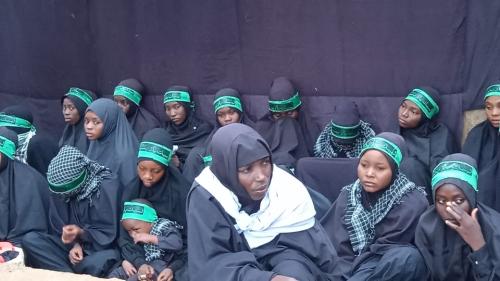The Shiite Community in Abuja: Essential Insights
Shiite communities play a significant role in Abuja’s diverse cultural and religious landscape. It is important to understand the traditions, beliefs, and contributions of this community to society as a whole. Throughout this guide, you will learn about the history, practices, and current presence of the Shiite community in Abuja.
Key Takeaways
-
Historical Significance: The Shiite community has deep historical roots and contributes to Abuja’s religious diversity.
-
Religious Practices: Key practices include daily prayers, the observance of Ashura, and charitable activities.
-
Cultural Impact: The community enriches Abuja’s cultural landscape through education, festivals, and social services.
-
Current Challenges: The community faces challenges related to interfaith relations and social integration.
Historical Background
Islam’s Shiite tradition emerged in the early Islamic period, focusing on the Prophet Muhammad’s family leadership. Over centuries, Shiism has developed unique cultural and religious practices. Within Abuja’s broader Muslim community, the Shiite community has established itself as prominent and respected.
Religious Practices and Beliefs
Core beliefs
According to Shiite Islam, the Imams are considered the spiritual and temporal successors of the Prophet Muhammad. These are some of the key beliefs:
-
Imam: The belief in the Imams’ leadership, who are regarded as divinely appointed and infallible.
-
Ashura: The commemoration of Imam Hussein’s martyrdom, a significant event in Shiite history.
-
Tawhid: The belief in God’s oneness, central to all Islamic traditions.
Practices
Among the religious practices and rituals observed by Shiites in Abuja are:
-
Daily Prayers: Regular prayers are a fundamental practice, with specific rituals and recitations.
-
Commemorative Events: Annual events such as Ashura and Eid al-Fitr are observed with community gatherings, prayers, and processions.
-
Charitable Activities: The community is actively involved in charity work and social services, reflecting their commitment to helping others.
Community and Cultural Impact
Several Shiite communities contribute significantly to Abuja’s culture and society. Their presence enriches the city’s cultural landscape and adds to its religious diversity. Their impact can be summarized as follows:
-
Educational Institutions: The establishment of schools and educational programs that serve both the Shiite community and the wider public.
-
Cultural Festivals: Participation in and organization of cultural and religious festivals that promote understanding and unity among different groups.
-
Social Services: Provision of social services, including healthcare and support for the underprivileged, reflecting their commitment to community welfare.
Current Presence and Challenges
Community centers
Abuja is home to several Shiite community centers and mosques that serve as places of worship, learning, and social interaction. These centers maintain religious and cultural practices.
Challenges
Shiites, like many others, face challenges such as:
-
Interfaith Relations: Navigating relationships with other religious groups and addressing misconceptions or biases.
-
Social Integration: Ensuring full integration and participation in the broader societal context while preserving cultural and religious identity.
Frequently Asked Questions
What is Shiite Islam’s primary belief?
Shiite Islam emphasizes the Imams’ leadership as divinely appointed successors to the Prophet Muhammad. It has a strong focus on the concept of imams and the commemoration of historical events like Ashura.
How does the Shiite community contribute to Abuja?
The Shiite community contributes to Abuja through educational institutions, cultural festivals, and social services that benefit both their members and the broader public.
What religious practices are observed by Shiite Muslims in Abuja?
Main practices include daily prayers, religious events like Ashura, and active participation in charitable activities.
Are there Shiite community centers in Abuja?
Yes, there are several Shiite community centers and mosques in Abuja that serve as hubs for worship, education, and social interaction.
What challenges does the Shiite community face in Abuja?
The community faces challenges related to interfaith relations and social integration, which they navigate while maintaining their cultural and religious identity.
Conclusion
Among Abuja’s religious and cultural landscapes, the Shiite community is vibrant and integral. Their rich traditions, religious practices, and contributions to societal well-being demonstrate their significance within Abuja’s broader context. They provide valuable insight into the city’s diversity and dynamism by understanding their role.


